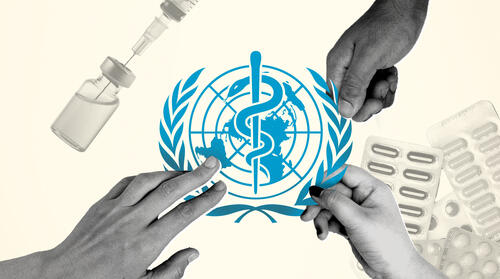
Breaking News
 BREAKING EXCLUSIVE: Kyle Rittenhouse Warns The Left Is Preparing To Stage A False Flag To Blame...
BREAKING EXCLUSIVE: Kyle Rittenhouse Warns The Left Is Preparing To Stage A False Flag To Blame...
 The Biggest Grid We Escaped (It Wasn't Power)
The Biggest Grid We Escaped (It Wasn't Power)
 Both Sides Gear Up For "War" As An Internal Revolution Begins To Erupt In The United State
Both Sides Gear Up For "War" As An Internal Revolution Begins To Erupt In The United State
 The Good News Is People Are Realizing We're On Our Own
The Good News Is People Are Realizing We're On Our Own
Top Tech News
 World's most powerful hypergravity machine is 1,900X stronger than Earth
World's most powerful hypergravity machine is 1,900X stronger than Earth
 New battery idea gets lots of power out of unusual sulfur chemistry
New battery idea gets lots of power out of unusual sulfur chemistry
 Anti-Aging Drug Regrows Knee Cartilage in Major Breakthrough That Could End Knee Replacements
Anti-Aging Drug Regrows Knee Cartilage in Major Breakthrough That Could End Knee Replacements
 Scientists say recent advances in Quantum Entanglement...
Scientists say recent advances in Quantum Entanglement...
 Solid-State Batteries Are In 'Trailblazer' Mode. What's Holding Them Up?
Solid-State Batteries Are In 'Trailblazer' Mode. What's Holding Them Up?
 US Farmers Began Using Chemical Fertilizer After WW2. Comfrey Is a Natural Super Fertilizer
US Farmers Began Using Chemical Fertilizer After WW2. Comfrey Is a Natural Super Fertilizer
 Kawasaki's four-legged robot-horse vehicle is going into production
Kawasaki's four-legged robot-horse vehicle is going into production
 The First Production All-Solid-State Battery Is Here, And It Promises 5-Minute Charging
The First Production All-Solid-State Battery Is Here, And It Promises 5-Minute Charging
 See inside the tech-topia cities billionaires are betting big on developing...
See inside the tech-topia cities billionaires are betting big on developing...
Governments Must Reject New Amendments to International Health Regulations

Remember when we were subjected to a surreal barrage of orders from our governments to stay home, not entertain more than X guests for dinner, not open bars and restaurants to unvaccinated customers, stay away from places of worship, wear pieces of cloth on our faces while walking to our seats in bars, etc etc., purportedly with a view to crushing a respiratory virus that made a relatively marginal impact on average life expectancy?
And then we all took a big sigh of relief when governments finally lifted the restrictions? Well, don't get too comfortable, because the WHO, most likely with the complicity of your government, is pushing through a set of amendments to international pandemic laws that will put your livelihood and liberties at the mercy of a WHO-appointed "expert committee" whose advice during a pandemic or other "public health emergency" will supersede that of your own government.
The proposed amendments to International Health Regulations do not require any new treaty, even though the WHO is attempting to get a separate pandemic accord ratified in addition to the IHR amendments. These amendments alone will revolutionise the international legal framework that governs responses to public health emergencies. The amendments are still being negotiated and the WHO aims to see them finalised in May 2024. They will be considered fully ratified ten months later unless heads of State explicitly reject them in the meantime.
It is critical that heads of State explicitly reject these amendments before they come into effect, because they cede a dangerous amount of power to the WHO during international public health emergencies, and the WHO can activate this emergency power by unilaterally declaring a public health emergency "of international concern."

 Storage doesn't get much cheaper than this
Storage doesn't get much cheaper than this

